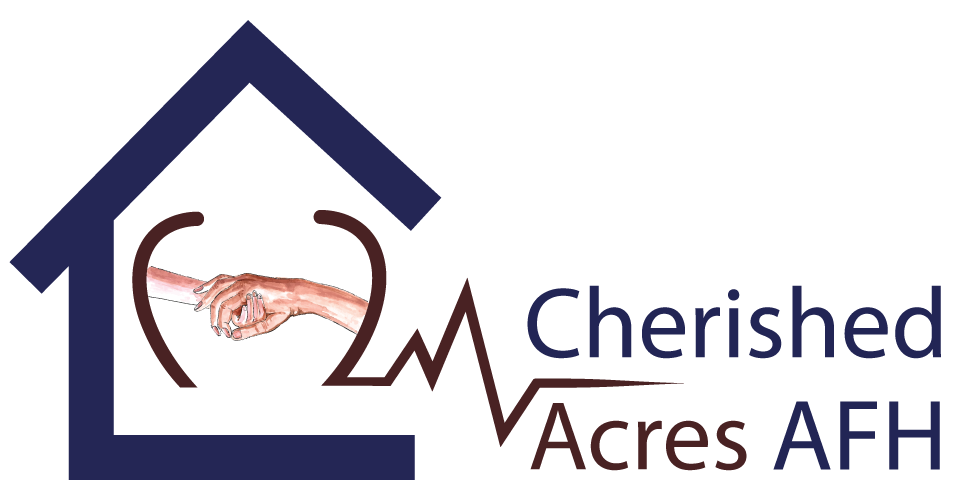Did you realize that dementia is an umbrella of diseases impacting on more than 55 million people across the world? As individuals grow old, it is of importance to know more about the various types of dementia in order to make early diagnosis and provision of care. As loss of memory is a characteristic symptom, Dementia Symptoms, dementia is represented by manifold cognitive and behavioral alterations which depend on the type.
In this article, we will see:
- The main types of dementia symptoms
- The causes of dementia among the older people
- There are also some other diseases of dementia that are worthy of knowing
- The difference among these types on symptoms, progression and treatment.
What Is Dementia Disease & Dementia Symptoms?
Dementia is a general term for a decline in cognitive ability severe enough to interfere with daily life. It affects memory, reasoning, problem-solving, language, and even personality. It is more common in older adults, but it is not a normal part of aging.
Common Dementia Symptoms Include:
- Memory loss
- Confusion or disorientation
- Trouble with language or communication
- Poor judgment and decision-making
- Changes in mood or behavior
Causes of Dementia in Elderly
Depending on its type, the origin of dementia in elderly people can be different but obvious to the diagnosis.
The most commons are:
- Neurodegenerative diseases like the Alzheimer disease that consist of progressive loss of brain cells as time goes by
- Problems with the circulation, including slowed down blood flow or even strokes which lead to damage of brain tissues
- Like anomalous buildup of proteins, e.g. lewy bodies, or tau tangles, which impair usual brain functioning
- Too much cerebrospinal fluid, such as in the condition Normal Pressure Hydrocephalus, experience has resulted in a brain compressed enough to cause damage and pressure.
- Uncommon inherited diseases and infections that may initiate cognitive loss in some of them
Effective management of symptoms, deceleration of the disease, and increasing the general level of life quality are initially dependent on the identification of the underlying cause, which is critical to achieve with the help of early diagnosis.
The 4 Main Types of Dementia
Let’s explore the 4 main types of dementia, each with distinct symptoms, progression, and causes.
Alzheimer’s Disease
Overview:
The prevalent type of dementia is Alzheimer with 60-70 percent of all the recorded cases. It is brought upon by the deposition of the beta-amyloid plaques and the tau tangles, which destroy and damage the brain cells.
Key Dementia Symptoms:
- Short-terms memory loss
- Trouble with word finding
- Time or place disorientation
- The changes of personality and behavior
Progression:
Slow and unstoppable. Initially manifested by minor forgetfulness and gets worse gradually.
Common in:
Individuals older than 65, in particular having a familial or hereditary (e.g., the APOE-e4 gene).
Vascular Dementia
Overview:
Due to poor blood supply to the brain due to strokes and in small vessels or by chronic conditions (high blood pressure).
Key Symptoms:
- Decision-making or solution deficiency
- Slowed thinking
- Ambulatory problems or physical incompetence
Progression:
May either be acute (post stroke) or chronic. May move in phases which have stabilities.
Common in:
Those that have heart diseases, diabetes, high blood pressure, or earlier strokes.
Lewy Body Dementia (LBD)
Overview:
Caused by abnormal protein deposits (Lewy bodies) in brain cells. Shares features with both Alzheimer’s and Parkinson’s disease.
Key Symptoms:
- Visual hallucinations
- Tremors, muscle stiffness
- Sleep disturbances
- Fluctuating attention and alertness
Progression:
Symptoms may vary from day to day. Motor symptoms may appear early or later.
Common in:
People over 60, often misdiagnosed initially as Parkinson’s or Alzheimer’s.
Frontotemporal Dementia (FTD)
Overview:
A group of disorders affecting the frontal and temporal lobes, which control behavior, personality, and language.
Key Symptoms:
- Apathy or social withdrawal
- Impulsive or inappropriate behavior
- Loss of empathy
- Language problems
Progression:
Often starts younger (ages 45–65), progresses steadily, and may not involve memory loss early on.
Common in:
Middle-aged adults and those with a family history of FTD.
Other Dementia-Related Diseases
Along with the 4 major types of dementia, dementia-like symptoms can also be induced by the following set of disorders which are not to be disregarded:
Mixed Dementia
Definition:
Two or more types of dementia, in general, Alzheimer and vascular dementia.
Why It Matters:
There is the possibility that symptoms overlap causing more difficulty in a diagnosis and treatment. In particular, mixed dementia is high among elderly patients.
.
Parkinson’s Disease Dementia
Definition:
Develops in people with Parkinson’s disease, usually in later stages.
Symptoms:
- Memory issues
- Hallucinations
- Slow thinking
- Motor symptoms (tremors, stiffness)
Why It Matters:
Requires both neurological and psychiatric care to manage symptoms effectively.
Normal Pressure Hydrocephalus (NPH)
Definition:
A disease that is a result of an excessive amount of cerebrospinal fluids into the ventricles of the brain, which strains the brain tissue.
Classic Triad:
- Shuffling gait
- Urinary incontinence
- Memory problems
Why It Matters:
It can be possibly reversed through surgery (e.g. shunt) hence it is important to diagnose it early.
Creutzfeldt-Jakob Disease (CJD)
Definition:
An extremely severe, incurable, brain ailment that is brought about by anomalous prion proteins.
Symptoms:
- Rapid memory loss
- Muscle tightness and twitching
- Confusion and behavioral changes
- Difficulty walking
Why It Matters:
CJD progresses rapidly—often within months—and is always fatal. Requires supportive palliative care.
How These Dementias Differ
| Dementia Type | Primary Cause | Key Symptom(s) | Progression Pattern |
| Alzheimer’s | Beta-amyloid & tau buildup | Memory loss, confusion | Gradual, steady decline |
| Vascular Dementia | Stroke or vessel damage | Planning issues, slower thinking | Sudden or stepwise decline |
| Lewy Body Dementia | Lewy body protein deposits | Hallucinations, tremors | Fluctuating |
| Frontotemporal Dementia | Frontal/temporal lobe damage | Behavior/language changes | Often earlier, steady |
| Mixed Dementia | Multiple causes | Combined symptoms | Variable |
| Parkinson’s Disease Dementia | Parkinson’s progression | Motor + cognitive decline | Progressive |
| Normal Pressure Hydrocephalus | CSF buildup | Gait, incontinence, memory | May be reversible |
| Creutzfeldt-Jakob Disease | Prion proteins | Rapid cognitive and motor decline | Rapid and fatal |
Diagnosis and Treatment
Diagnosis:
- Reviewing and history of the dementia symptoms History review of medical history
- Cognitive examination (MMSE, MoCA)
- CT scans, Brain imaging or MRI
- Blood tests to rule out factors that are curable
- The input of family caregivers
Treatment:
Unfortunately, the condition cannot be cured – but in terms of dementia symptoms management, there are ways to ‘treat’ such as:
- Memory-supporting drugs such as Donepezil and Memantine
- Occupation and PT(Physical Therapy).
- Psychiatric service and Counseling
- Lifestyle modification (modifying the diet, exercising, mentally stimulating)
In some cases of NPH, there is a partial reduction in the Dementia Symptoms that can also be done through surgery that can be of significant help.
Dementia Prevention Tips
Not every case of dementia is preventable, but scientists have found that practices that are healthy to the brain can minimize the risk factors:
- Eat healthy foods (Japanese diet) and good (heart) style of living (control BP levels, cholesterol, blood sugar)
- Perform exercises on a regular basis
- Attain high sleeping quality and control stress
- Stay active socially, mentally as well
- Eat well (e.g. Mediterranean diet or DASH diet)
It is particularly during the midlife and late adulthood that these are very essential steps..
Conclusion
The condition of dementia is very personal and complicated. Making yourself acquainted with the 4 major types of dementia and other associated disorders, such as Mixed Dementia, NPH, and Parkinson Disease Dementia will help one come up with early diagnoses, effective care plans, and enhance empathy.
As a caregiver, as a medical student, or as somebody caring about a loved one, knowledge is an empowerment tool in the treatment of the various types of dementia.
Contact us today to learn more or to get support in creating a care plan for your loved one.


